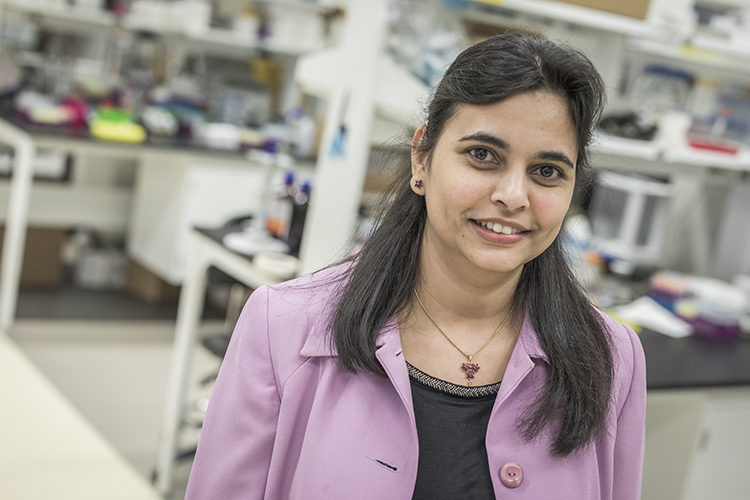Glioblastoma (GBM) is the most aggressive of all brain tumors with limited treatment options and no cure. Even after multimodal treatments by surgical resection of tumor, chemo and radiotherapy, the prognosis is poor (median survival <15 months) and recurrence is inevitable. The recurrent tumors are more aggressive with limited treatment options. Bevacizumab (BV), an anti-VEGF therapy, was recently approved by the FDA as a single agent for the treatment of recurrent GBM. It is believed to be very effective to treat recurring tumors, however, not all patients do respond equally to BV therapy (~40% response rate by standard MRI criteria). Currently, no tissue marker exists to predict which patients will have a therapeutic response, which is crucial for continuous care.
Due to the lack of therapeutic assessment, the current approach is ‘wait and see’. The widespread use, expense, and increased risk of side-effects associated with BV creates a need for the development of a marker to predict therapeutic response prior to starting BV therapy. This discovery would have a tremendous clinical impact. However, even more impactful would be the discovery of alternative therapies for patients who are not expected to benefit from BV as well as for those who eventually fail BV.

Using mass spectrometry-based proteomics approaches, Mirza group proposed to identify prognostic biomarkers to BV therapy a priori in recurrent glioblastoma patients. The findings from the study, supported by the UWM Discovery and Innovation Grant, will provide protein signatures, which can be used to identify patients who will derive the greatest benefit from BV and those who will not, even before therapy has started. This information will enable important clinical decisions regarding the use and treatment of BV, as well as consideration of alternate therapeutic strategies for non-responders. In addition, identifying tumor specific pathways in GBM patients will open avenues to new treatment options.